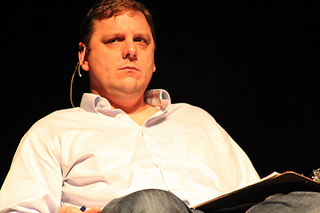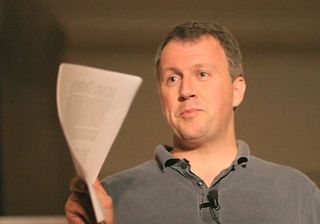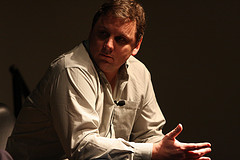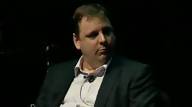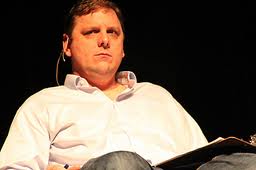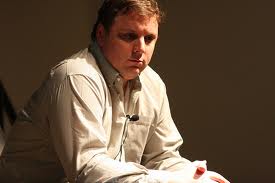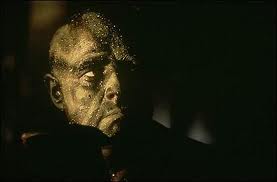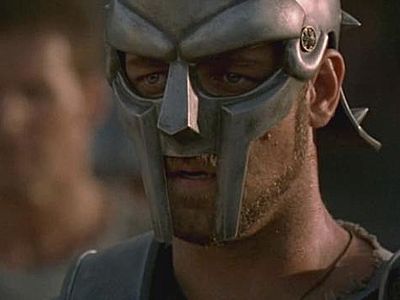If you missed the whole Airbnb affair- (now referred to as #ransackgate), you should probably consider yourself lucky and should stop reading here. You probably don't rent your house out to perfect strangers too often so this piece of news passed you by somehow. Perhaps you were more focused on how the Syrian government just wiped-out 70+ civilians last night or how a nutjob in Norway savaged a similar number of people in a national tragedy. Maybe you're one of those people that knows there is a famine going on in Somalia even though it's not getting too much press.
Still here? Well- then you probably heard that a meth addict used an alias on Airbnb recently to rent a person named EJ's house while she was travelling and then proceeded to violate, steal, defile, destroy the victim's home. What happened to EJ's home is horrific and criminal. Anyone who's had something stolen from them has some sense of the outrage and sense of violation and pain that comes with this territory. The alleged offender is apparently in custody now and will hopefully be tried. If she is indeed found guilty- I hope she'll be convicted and jailed to the full extent of the law.
But we haven't heard much about this "alleged" low-life. Media coverage of the crime has instead focused either on Airbnb's alleged complicity in EJ's misfortune and/or their poor handling of the P/R aspects. The alleged felon who committed this odious crime is hardly mentioned. This is not surprising. Airbnb's success and billion dollar valuation make it a perfect target for this sort of criticism.
Could and should the founders have handled the P/R aspects a lot better? Definitely! But who are we kidding- did they really have a chance? The headlines here are simply tailor-made for generating eyeballs. I am not making these up:
Airbnb Pillage Victim Says Company Tried to Keep Her Quiet
A Billion Dollars Isn't Cool. You Know What's Cool? Basic Human Decency
The Airbnb Horror Story Continues
You read these headlines and it sounds like Airbnb is some kind of rich serial murderer on the loose- pillaging and laying waste to scores of innocent and kindly citizens in its path.
Much like the Craigslist imbroglio of past years, this entire Airbnb affair has again brought to the fore questions about where a company's responsibility (legal and ethical) to its customers' safety begins and ends. Rather than presenting a long opinion on the matter I've instead decided to ask some admittedly facetious questions. For the sake of brevity I've made them multiple choice.
When a car-maker manufactures a car what scenarios do they need to anticipate? For example, is it morally or ethically obligated to protect its customers against:
a) car-jacking attacks
b) hitch-hiking meth addicts that drivers pickup on the road and invite into their car
c) damage caused by strangers to whom drivers lend or rent their car to for free or for a fee
d) none of the above (muttered under one's breath)
Should the car-maker be obligated to place disclaimers on the driving wheel of the car warning people that inviting strangers into their car out of the goodness of their hearts or for a fee comes w/certain risks?
a) yes- people are not intelligent enough to know this and need to be treated like children
b) yes- car-makers are greedy and want to save money. They should be monitoring all their drivers via video cameras and be able to intervene via installed speakerphones when their customers are making dubious choices
c) yes- we need to legislate this. I am calling my congressman
d) none of the above (accompanied by possible expletive)
Oh wait, carmakers are brick and mortar businesses. They don't count. What about if someone uses a fake LinkedIn Profile on the internet and invites me to become a connection with them because we share two business groups in common? Then that person wants to have coffee and they seem cool and I let them stay at my house while I am vacationing and they trash my house. Shouldn't LinkedIn vet these people? Wait- what if instead of trashing my house that person partners with me in a new business and then steals all the cash I put in the business bank account?
a) yes, LinkedIn sucks! They are too greedy and don't bother to vet people on their network.
b) yes, LinkedIn should actually pay for the damage to my house. Their business model doesn't really protect me enough. I thought this person was legit! I'm calling my lawyer.
c) this is an outrage- the LinkedIn founders don't care about their customers. They've gone IPO and cashed out. I'm calling my congressman.
d) you know it by now :)
For Part 32 in in this Series, click here

